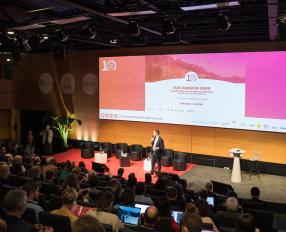
France Urbaine officially launches its working group on the attractiveness of urban areas
France Urbaine's "Economy of Territories" commission has launched a new working group focused on analyzing the attractiveness of urban territories, and the need to identify new tools and indicators useful at these scales (metropolises, agglomerations and large cities).
This "attractiveness" working committee is made up of elected representatives, technicians and managers in charge of these issues. The notion of territorial attractiveness is important for defining, identifying and assessing the dynamics of French towns and cities, integrating economic, social and environmental aspects. At a time of major transitions, this is a priority for public policies on regional planning at both municipal and inter-municipal levels.
To this end, this new initiative is being carried out in collaboration with the Attractiveness and New Territorial Marketing (A&NMT) Chair at Aix-Marseille University's Institute of Public Management and Territorial Governance (IMPGT). One of the pillars of this initiative is to highlight initiatives undertaken in urban areas, and to create a guide of best practices, case studies and scientific publications. Stay tuned for more news on this working group's future achievements.
A word about France Urbaine
Chaired by Johanna Rolland, Mayor of Nantes and President of Nantes Métropole, France Urbaine is the benchmark association for metropolises, urban communities, conurbation communities and major cities. It is an association of local authorities that embodies urban diversity and promotes the alliance of territories.
Supported by elected representatives of all political persuasions, the association has 108 members. It represents 2,000 municipalities of all sizes, home to nearly 30 million French residents.
The association brings a political and technical vision to bear for its members and citizens, engaging in ongoing dialogue with all players in society at local, national, European and international levels. It informs public decision-making on the main issues concerning urban areas and decentralization.
Our readers are also interested by

Place Marketing Forum 2022 - Célébration des 10 ans de la Chaire !





